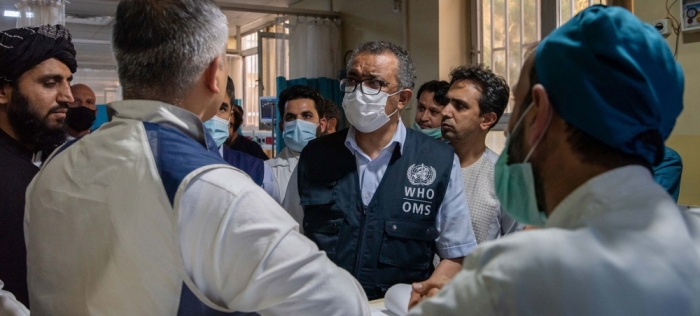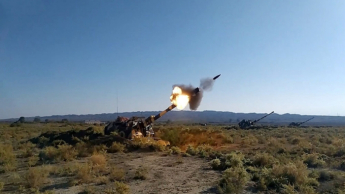Afghanistan’s healthcare system on brink of collapse, as hunger hits 95 per cent of families

Afghanistan’s health system is on the brink of collapse, Head of the World Health Organisation (WHO) Director-General Tedros Adhanom Ghebreyesus warned on Wednesday, while on the streets of Kabul, the hunger families are suffering is as acute in urban areas as the drought-stricken rural parts of the country, according to the official website of the Organization.
Afghanistan’s health system is on the brink of collapse, Head of the World Health Organisation (WHO) Director-General Tedros Adhanom Ghebreyesus warned on Wednesday, while on the streets of Kabul, the hunger families are suffering is as acute in urban areas as the drought-stricken rural parts of the country, according to the official website of the Organization.
The development came as the United Nations’ top humanitarian official, Martin Griffiths, announced the release of $45 million from an emergency fund to support Afghanistan’s crumbling health-care system.
“Allowing Afghanistan’s healthcare delivery system to fall apart would be disastrous,” said Mr. Griffiths. “People across the country would be denied access to primary healthcare such as emergency caesarean sections and trauma care.”
Echoing that message from the Afghan capital, Kabul, WHO Director-General Tedros Adhanom Ghebreyesus said that international funding cuts had forced health providers to decide “who to save and who to let die”.
After meeting senior Taliban figures, medical professionals and patients, Tedros explained that a lack of financial support for the country’s largest health project, Sehetmandi, had left thousands of facilities unable to buy medical supplies and pay salaries.
Fewer than one in five of the country’s Sehetmandi facilities remained open, the WHO chief explained, although he said that access to all communities was “no longer impeded”.
“This breakdown in health services is having a rippling effect on the availability of basic and essential health care, as well as on emergency response, polio eradication, and COVID-19 vaccination efforts,” Tedros said, amid reports that cold chain medical storage has been compromised.
The WHO chief also noted that nine of 37 COVID-19 hospitals have already closed, and that “all aspects” of the country’s COVID-19 response have dropped off, from surveillance to testing and vaccination.
Amid concerns over women’s rights in the country following the appointment of an exclusively male Taliban interim cabinet earlier this month, Tedros insisted that women needed access to education, health care, and to the health workforce.
“With fewer health facilities operational and less female health workers reporting to work, female patients are hesitant to seek care,” he said. “We are committed to working with partners to invest in the health education of girls and women, as well as continue training female health workers.”
Among its operations in Afghanistan, WHO supports an extensive trauma programme that includes training, the provision of supplies and equipment for 130 hospitals and 67 blood banks.
The Rocket and Artillery formations of the Azerbaijan Army conduct live-fire exercises in accordance with the combat training plan for 2021, the Ministry of Defense of Azerbaijan told Baku Tribune.
LAST NEWS






.jpg&h=67&w=67&zc=1&q=100)













